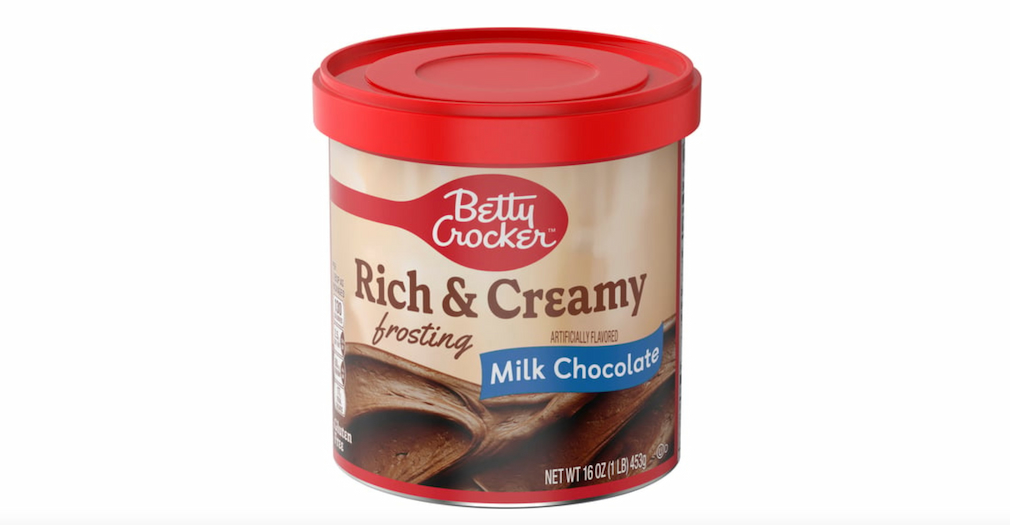
Betty Crocker Milk Chocolate Frosting
Got milk? Apparently not.
April 2020: A federal judge granted final approval of the settlement agreement.
November 2019: A federal judge preliminarily approved the settlement agreement. A final fairness hearing is scheduled for April 21, 2020. For more information, go to InstantCoffeeLawsuit.com.
October 2019: Plaintiffs moved for preliminary approval of a settlement agreement that would provide class members with cash awards. For more information, go to http://instantcoffeelawsuit.com/.
November 2015: Plaintiffs filed an amended complaint making similar allegations regarding the marketing of Grove Square individual coffee cartridges (i.e., that Sturm Foods misleadingly labels the cartridges as freshly-brewed when, according to plaintiffs, the cartridges contain instant coffee).
August 2014: An appellate court reversed the district court’s decision to dismiss the case and sent the case back for further proceedings. The appellate judge found two errors in the district court’s decision denying class certification: First, the district court did not recognize that the question of whether the packaging was likely to mislead a reasonable consumer is common to all the class members; and second, it applied too strict of a test when considering whether common questions predominate over individual ones. The appellate court also found that summary judgment was inappropriate because there was a question of fact (i.e., whether the product’s packaging was likely to mislead a reasonable consumer) and that question should have been answered by a jury. (Suchanek et al v. Sturm Foods, Inc., and Treehouse Foods, Inc., Case No. 13-3843, 7th Cir.).
November 2013: A federal judge dismissed a class-action lawsuit alleging that Sturm Foods misleadingly labeled its Grove Square individual coffee cartridges. Specifically, the complaint, which was originally filed in 2011 and later amended, alleged that the company labels the single-serve coffee cartridges as freshly-brewed when they are actually instant. In the order closing the case, the judge explained that he did not certify the class because issues such as reliance and causation required an individual inquiry, and he granted the company’s motion for summary judgment because the plaintiffs failed to show that their financial loss was caused by Sturm Foods’ alleged mislabeling or deceit. (Suchanek et al v. Sturm Foods, Inc. and Treehouse Foods, Inc., Case No. 11-cv-00565, S. D. IL.).
Got milk? Apparently not.
Flag on the play.
What you need to know about what some are calling “liquid gold.”
TINA.org investigates where these clickbait emails are actually coming from.
SNICKERS is coming to the rescue for all flight attendants and passengers who need help 36K feet in the air.



